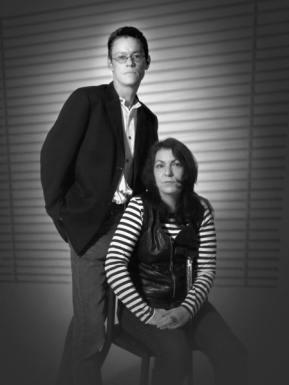In 1930, Cole Porter asked the crowd in the then-young Broadway who was “prepared to pay the price for a trip to paradise.” Love for Sale, a song by the American songwriter, is narrated by a prostitute. For obvious reasons, it was not well received at that time.
The tune became a standard, but “love for sale” did not leave marginality. It lies at the core of Alexandra and David Beesley’s work. With their eyes fixed on “pleasure suppliers,” who belong in realities as fanciful as they are cruel, the artist couple travels across the various dimensions of existence of those to whom sex is a job.
Using an approach devoid of veils and full of different tones and shades, they position their cameras in a natural fashion and with a critical stance. They want to showcase the daily life of those who are both “victims and defendants,” as observed by one of the interviewees in Revolving Door, the documentary that earned the Anglo-Australian duo the Contemporary Investigations/Acquisition Prize at the 16th International Electronic Art Festival SESC_Videobrasil (2007).
“There is such a stigma attached to sexual work that we consider it important to break the stereotypes. We wanted to portray the characters as persons, not as prostitutes; to show that sexual work is something they do, not something that defines them as human beings,” they say.
Partly born out of the idea of ensuring anonymity to its true characters, the resort to animation is one of the strongest features in the duo’s work, enabling it to be interpreted in multiple ways. “Documentary allows the subject a voice; animated documentary reinforces the subject by insisting upon the author’s presence as its politically invested guarantor,” Professor Paul Wells, who specializes in animation, writes in the Essay.
Further info on this artist available at the collection
